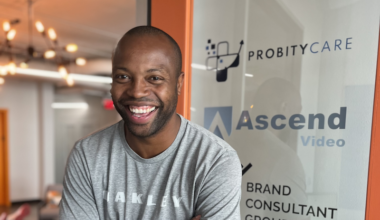Over the years, I’ve worked with several large companies that have “intrapreneurship” programs, which refers to initiatives that allow employees at large companies to take on an entrepreneurial role within the organization. The main idea is that these ‘intrapreneurs’ will be self-motivated, proactive, and innovative, all the while remaining company employees.
I’ve also worked with a large number of academics and inventors who have created something innovative and want to turn it into a product and company. Additionally, I’ve worked with wealthy individuals who have the money and time to fund and develop their own ideas into commercial ventures.
At first glance, these three categories – intrapreneurs, academics, and founders with money – don’t seem to have much in common. But in one very unique way, they do. The cost of their failure will not affect them personally very much and, more importantly, they often have more than sufficient resources.
Parkinson’s Law states that work expands to fill the time and resources available. Having too much time or money can actually slow progress and reduce urgency. To succeed, startups must guard against Parkinson’s Law by artificially constraining resources.
The time trap
Time is the most precious resource for any startup founder. Yet with no concrete deadlines, Parkinson’s Law dictates that product development and other startup activities will drag on indefinitely. What should take 2 weeks can end up taking 2 months. This slow pace runs counter to the key startup advantage: Speed.
With limited resources, startups are forced to iterate rapidly, using customer feedback to evolve the product. Every extra month of development is lost learning and becomes a long runway that can lead to personal financial ruin.
As Reid Hoffman, co-founder of LinkedIn said, “If you’re not embarrassed by the first version of your product, you’ve launched too late.”
Why money is a crutch
Parkinson’s Law also applies to startup funding. An abundance of investment tends to make startups less efficient and disciplined. Easy access to capital removes the economic necessity that forces hard choices regarding scope, staffing, and run rate burn.
Look at the cautionary tale of Color Labs. In 2011, the photo sharing app raised $41 million in a venture capital pre-launch, a record amount for the time. With a huge war chest, the founders pursued perfection, delaying release for over a year. When the app finally launched, the market had moved on. Color Labs ultimately shut down, having burned through all of its capital with no results.
In contrast, Instagram launched successfully in 2010 with just $500,000 in seed funding. Constrained resources forced fiscal discipline, creative solutions, and a reduced runway. The team couldn’t over-engineer the product even if they wanted to.
I’ve observed that the trifecta of intrapreneurs, academics, and rich people have all the resources that they need – and that is the very problem.
Resourcefulness beats resources
Beyond time and money, Parkinson’s Law also applies to any allocable resource like computing power, storage space, and team size. Given the option, startups will expand to consume all available resources, whether those resources provide value or not.
In the early days, resources should be viewed as a form of waste. Technical over-engineering, extra features, and inflated headcount can turn into subtle killers of any startup – every resource must be accounted for and fully utilized.
Rather than accumulating resources, startups should embrace and even create constraints as a function that forces creativity. With less, you’re required to do more. You identify what is absolutely essential to move the business forward. You improvise quick and imperfect solutions based on your current limitations. You build a culture of thrift and discipline.
Airbnb exemplifies startup resourcefulness. When launching in 2008, the founders had no money and minimal infrastructure. To attract the first users, the company’s team manually went door to door in New York, recruiting hosts and renters.
Facing a chicken-and-egg problem, they hacked Craigslist to direct traffic to Airbnb listings and even created fake bookings themselves to simulate demand. Scrappy resourcefulness, not abundant capital, fueled Airbnb’s early growth.
How to overcome Parkinson’s
For any new venture, having limited resources can be a hidden advantage. Constraints spurthe urgency and hustle required in the startup environment. But without vigilance, Parkinson’s Law will take hold as soon as resources expand.
To stay lean and competitive, founders must artificially impose constraints around time, money, tools, and team size. With creativity and focus, these limitations become assets rather than obstacles on the road to startup success.
To avoid the temptation of overspending, the best policy for early-stage startups is deliberately not to raise enough money to hit the next milestone, and to not have enough time to get there.
This isn’t hard, in fact it comes naturally to the vast majority of entrepreneurs that I work with. For all the intrapreneurs, academics, and rich people out there: set artificial constraints, especially if more funding or other resources are available.
And always, remember that a necessary condition to being hungry is not having enough food. Stay hungry.








